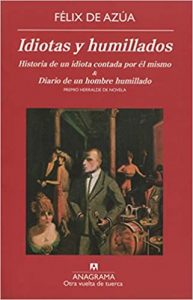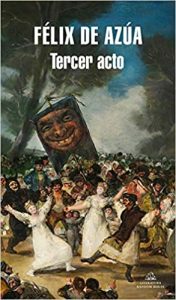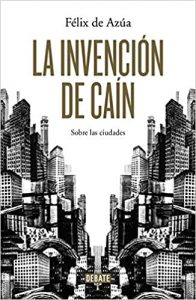Among the illustrious buttocks who occupy a seat in the Royal Spanish Academy, Javier Marías, Arturo Perez Reverte, Mario Vargas Llosa, Álvaro Pombo y Felix de Azúa They are, in my opinion, those who best worship the language through its most popular and necessary channel: the novel.
Because all that of the language, its cleanliness, the fixation and the consequent splendor is very good to rule from the framed offices of the shift. But the question is to lavish oneself with the example and fight the duel of the approach to the common language from something as apparently innocent as works of fiction.
More than anything because in the end the novel lacks any innocence and ends up being the most powerful weapon towards that maintenance and "fixation" of the common knowledge of things, of the most appropriate name to continue talking about the same thing.
So well acquired the mission of the diffusion of the language especially to the writers of novels that reach all audiences. And if in addition to being writers they are academics and also write as soberly well as Félix de Azúa, then honey on flakes.
Top 3 recommended novels by Félix de Azúa
Idiots and humiliated
One of those necessary volumes of literature in Spanish. An extensive work that novels about the Spanish idiosyncrasy, that fictionalizes the crude notions of a melancholic country of the XNUMXth century. A nation stranded on the shores of the dictatorship, longing for impossible old glories and tired of itself whose transition was more relevant from the sociological scenario than from the political sphere.
A book that collects the two most corrosive, indispensable and celebrated novels about the youth that went through the Transition. The protagonist of the first is an idiot of the twentieth century, writes the author. Victim of the folly of the second postwar period in Europe, our character, in The Story of an Idiot Told by Himself, insists on an investigation of happiness, which leads him to ruin.
This book should be adopted by all secondary schools as a survival manual; It doesn't prevent idiocy, but it helps prevent it. A book of "terrible insolence", as it was written in Le Canard enchaîné, experts in insolence.
In Diary of a Humiliated Man, the protagonist longs for a certain lost world, where instead of thinking, one only lived. Surrounded by a banality of a zoological order, he understands that his must be something else: a warlike banality. To do this he immerses himself in humid areas, rubs shoulders with the underworld and ends up looking for a sudden end.
Unfortunately, at that moment an animal appears. And what an animal! During nine gestatory months, the humiliated man writes in his Diary tributes to the Great Men of Old and reflections (as sharp as they are lunatic) on pressing issues such as the lethal consequences of reading, the fine arts and intelligence.
Third act
I wish the third act of the History of Spain was a simple resolution after a natural warped beginning and a knot full of chiaroscuro. But the great final acts can point to that open ending that again poses more and more challenges, as in a narrative loop that is essentially the history of the human being.
The best thing then is to aim for the intrastories to keep the essentials in an evolution that is as cyclical as it is monotonous. Only in the passage of people is the brilliance of what has been experienced discovered. And every novel of historical inspiration must aim, in its greatest transcendent intention, by staying with the gesture and the detail that at times seems capable of changing everything.
This novel is a brilliant and relentless generational portrait that follows a group of friends in their vital journey through Franco's Catalonia, French dissidence, the modernization of Spain and the physical and mental decline of each and every one of its members.
A journey summarized through fleeting images and saturated with lysergic stimulants, Parisian social gatherings, Barcelona taverns, Empordà trips, Slavic choirs, visits to Jünger ... all seasoned with the lucid gaze and the characteristic humor of an essential writer to understand a whole generation of intellectuals and writers.
Philosophy, death, fatherhood, frivolity and madness are just some of the themes of a novel that, in a sense, closes a cycle in the work of its author.
The invention of Cain
Although it is not properly a novel, as is often the case with all travel books, the result ends up being a fictionalized approach from the perspective of the traveler.
The rest and tranquility of the observing traveler is like the first subject that the writer takes in his notepad. And thus, literature ends up sprouting in the final work, with that point of seduction for us to accompany it to one place or another and discover fascinating aromas, cultures and corners.
This book collects -now in a new corrected and enlarged edition- the writings of Félix de Azúa on the city, a compendium of travel chronicles, reflections, observations, panoramic views and interiors that make up a lucid and beautiful meditation on that stone space that Throughout history it has become the only home of man.
In these pages, always with intelligence and humor, Azúa travels to Venice, Munich, Berlin, Hamburg, Basel, Madrid or Seville, examines citizens, politicians and tourists, discovers forgotten corners, relives disappeared streets and, above all, continues to maintain a tense dialogue with literature and the arts as the highest expression of the human within the city.



